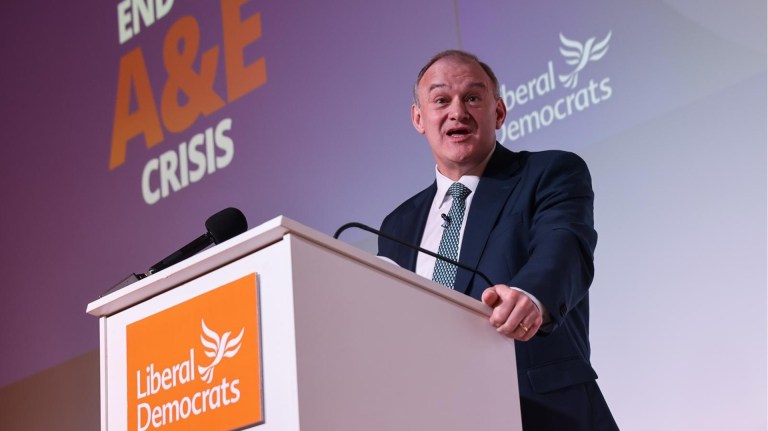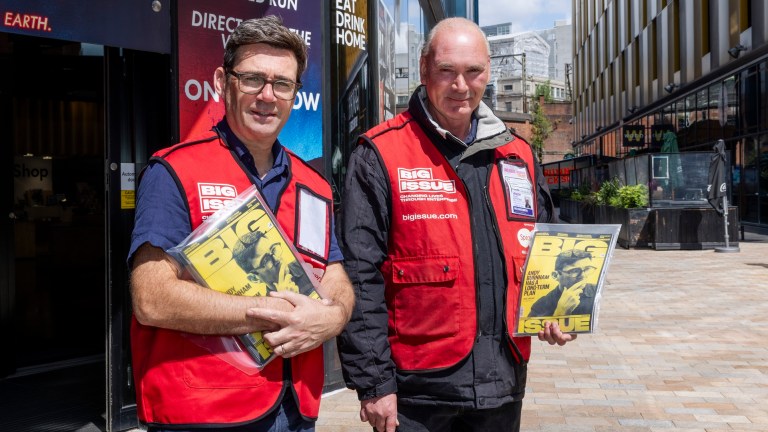As part of our clear plan, we have significantly expanded free childcare for working parents so that parents can go back to work or increase their hours. This is so important because children living in households where all adults work are around five times less likely to be in absolute poverty than those living in workless households.
We have also provided a £108bn cost of living support package over the last few years to help households through the period of high inflation caused by Putin’s war, preventing 1.3m people from falling into poverty.
If you saw a parent, clearly in extreme need, stealing baby formula to feed their child, what would you do?
Shoplifting is not a victimless crime, and we will always support shopkeepers to prevent theft. At the same time, we will continue to help parents with the cost of living. As well as the £108bn cost of living support package we’ve provided over the last few years to help households through the period of high inflation, we’ve also extended the household support fund, giving local authorities an extra £500m to support families in their local area who are in particular need with the cost of essentials.
Would you rather have coffee with Keir Starmer or Nigel Farage?
I don’t know either of them very well. Keir Starmer hasn’t kept the same position longer than it takes him to drink a coffee and I don’t know Nigel Farage at all. I’d rather have a coffee with John Bird!
Advertising helps fund Big Issue’s mission to end poverty
What is your biggest regret as prime minister?
I’m focused on fighting for every vote at this election so I can continue with our clear plan to grow the economy, cut taxes and build a more secure future for our children and grandchildren. Things haven’t been easy since the pandemic and war in Ukraine, but we are now turning the corner and my only regret would be not being able to take the bold action this country needs for the next five years because Labour has no plan and would take us back to square one.
Big Issue vendors’ questions to Rishi Sunak
BIGISSUE: Why aren’t you creating more social and realistically affordable housing? And why did you get rid of the increase in universal credit?Kelvin Gregory, Somerset House, London
RISHI SUNAK: We want everyone to have access to an affordable home. We have a strong record, delivering almost 700,000 affordable homes since 2010, a quarter more than the last Labour government. The four highest annual rates of housing supply in 30 years have all been since 2018. And we will go further by renewing the Affordable Homes Programme to deliver homes of all kinds and focus on regenerating and improving housing estates. We remain committed to building many more affordable homes, and our new Infrastructure Levy will mean hundreds of thousands will be built next parliament.
During the pandemic, we brought in a £20 uplift in universal credit to protect households and help families deal with the impact of lockdown. We’ve also provided unprecedented cost of living support over the last few years, worth £108bn. Analysis has shown this prevented 1.3 million people from falling into poverty during the period of high inflation caused by Putin’s invasion of Ukraine. We uprated benefits by 6.7% this year and 10.1% last year, as well as raising Local Housing Allowance rates which will benefit 1.2 million renters this year by £800 on average.
Would you consider a 1p tax rise that is ring-fenced for A&E to increase premises and staff in order to improve waiting times until GP appointments (and GPs) become more readily available?George Anderson, BBC Television Centre, London
Advertising helps fund Big Issue’s mission to end poverty
As the son of a GP and a pharmacist, I’m from an NHS family and as chancellor and prime minister I’ve always prioritised getting the health service the funding it needs. In the last five years, we’ve increased spending on the NHS in real terms by 13% to a record £164.9 billion a year. We invested more than £1 billion extra last year in our plan to help urgent and emergency care services recover from the pandemic, and a further £1 billion in our plan to help primary care services recover. This is having an impact – the last year saw the first year-on-year improvement in A&E waiting times outside the pandemic for over 10 years, and satisfaction with GP services is improving.
We know there is more to do, which is why our manifesto commits to investment in 250 new and modernised GP surgeries, and to further investment in Pharmacy First to free up 20 million GP appointments a year once fully scaled. We’re also training record numbers of doctors and nurses through the Long-Term Workforce Plan, and by the end of the next parliament there will be 92,000 more nurses and 28,000 more doctors in the NHS. I will always take the bold action the NHS needs to care for patients and families.
When was the last time you bought a Big Issue? What did you like about it?Paul Logan, Oxford Circus, London
I bought one this week and found the stories of the people who overcome great challenges every day to succeed really inspiring, from Paralympians to people with learning difficulties to those with disabilities. I’m proud of our record helping everyone to fulfil their potential whatever their background and I hope to do much more in the next five years with our clear plan to build a better future for everyone.
Do you have a story to tell or opinions to share about this? Get in touch and tell us more. Big Issue exists to give homeless and marginalised people the opportunity to earn an income. To support our work buy a copy of the magazine or get the app from the App Store or Google Play.









